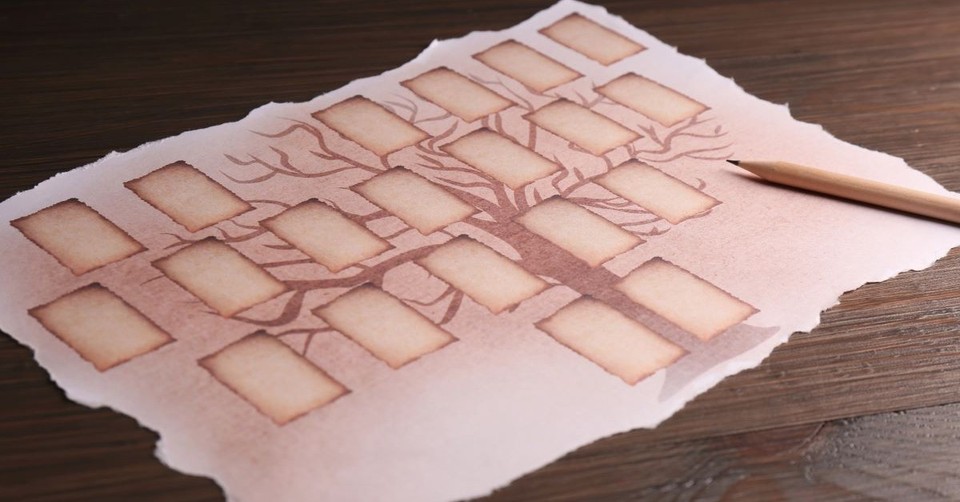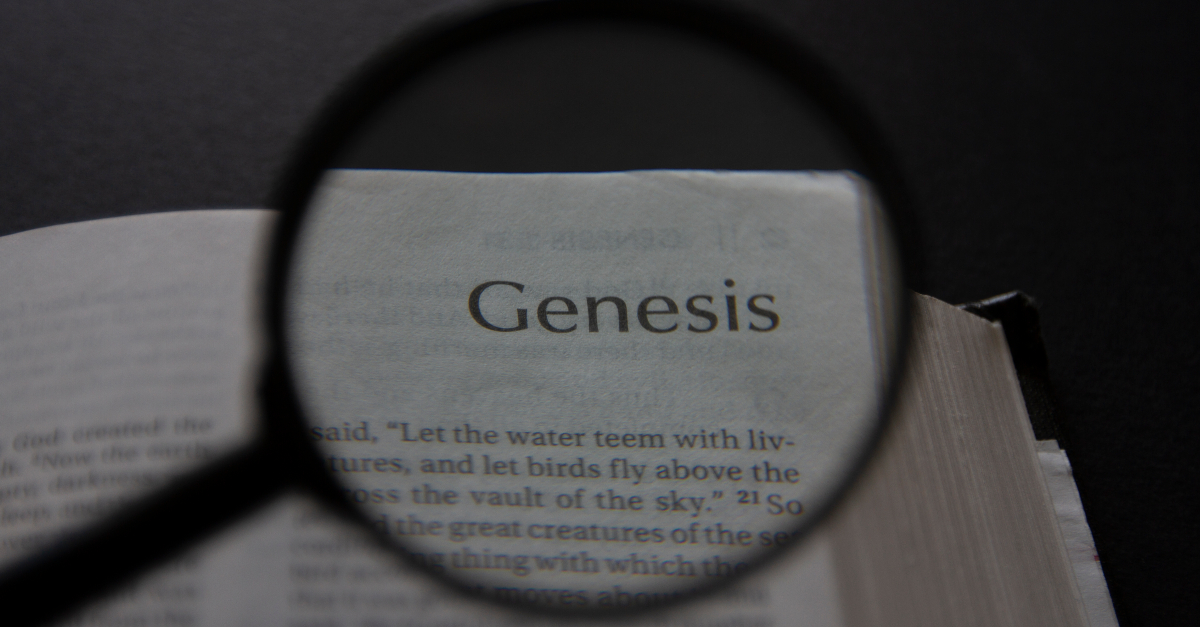Why Did Jesus Descend from the Tribe of Judah?

Have you ever wondered why Judah, the fourth son of Jacob and Leah, was chosen as the tribe that the Messiah would descend from? Out of twelve sons, why was Judah the chosen one?
Before Jacob died, under the influence of the Holy Spirit, he prophesied over each of his sons. But the words that rested upon Judah were indeed special.
Judah, your brothers will praise you; your hand will be on the neck of your enemies; your father’s sons will bow down to you. You are a lion’s cub, Judah; you return from the prey, my son. Like a lion he crouches and lies down, like a lioness–who dares to rouse him? The scepter will not depart from Judah, nor the ruler’s staff from between his feet, until he to whom it belongs shall come and the obedience of the nations shall be his. He will tether his donkey to a vine, his colt to the choicest branch; he will wash his garments in wine, his robes in the blood of grapes. His eyes will be darker than wine, his teeth whiter than milk. (Genesis 49:8-12 NIV)
Why Wasn’t This Blessing Given to the Firstborn, Reuben?
Reuben lusted after his father’s concubine, Bilhah, who was Rachel’s servant. Because of this, he lost his rights of firstborn, as Jacob reiterated in the prophecy to Reuben.
Reuben, you are my firstborn, my might, the first sign of my strength, excelling in honor, excelling in power. Turbulent as the waters, you will no longer excel, for you went up onto your father’s bed, onto my couch and defiled it. (Genesis 49:3-4)
The next sons in the order of birth were Simeon and Levi. In Genesis 34, we read about an incident where Jacob’s daughter, Dinah, was defiled by a man from Shechem. Simeon and Levi sought revenge on the entire city, killed all the people, and plundered their wealth.
This separated them from any regard toward messianic ancestry.
Simeon and Levi are brothers–their swords are weapons of violence. Let me not enter their council, let me not join their assembly, for they have killed men in their anger and hamstrung oxen as they pleased. Cursed be their anger, so fierce, and their fury, so cruel! I will scatter them in Jacob and disperse them in Israel. (Genesis 49:5–7)
Jacob had received the promise of the land as well as the kingdom's spiritual inheritance for the lineage. As the oldest, Reuben should have received a double portion of his father’s legacy. Reuben was stripped of all of this. The next in line after rejecting Simeon and Levi was Judah.
The Comparison of Judah with Judas Iscariot
Judah and Judas are the same name and mean “he shall be praised.” Judah is the Hebrew version, while Judas is how the name is written in Greek. As the son of Jacob’s favorite wife, Rachel, Jacob treated Joseph with special consideration, as indicated by the garment Jacob gave him.
Jealousy prompted Joseph’s siblings to throw him into a pit, and they talked of killing him. Their envy of Joseph’s relationship with his father, Jacob, burned within them to the point of irrational behavior. The temptation of monetary gain grew into Judah’s mind, and the idea of selling Joseph instead of killing him promised an excuse for their brother’s disappearance. The eleven sold Joseph for twenty pieces of silver.
Judah said to his brothers, “What shall we gain if we kill our brother and cover up his blood? Come, let’s sell him to the Ishmaelites and not lay our hands on him; after all, he is our brother, our own flesh and blood.” His brothers agreed. (Genesis 37:26–27)
As a disciple of Jesus, Judas was with Jesus for three years. He heard all the teaching and saw all the miracles. He never seemed to have the transformation of heart the other disciples did. His greed, like Judah’s, penetrated his heart with darkness, and prompted him to sell Jesus for thirty pieces of silver.
They both betrayed their brother for money.
Later Judah seemed to have a change of heart. In Egypt, the ten brothers who went to buy food bowed before their long-lost brother without knowledge of who he was. This confirmed the dreams Joseph had when he was younger. Because Joseph knew who they were and didn’t see his brother, Benjamin, with them, he inquired if they had other family members.
When they answered that they had another brother, Joseph wanted them to bring Benjamin to Egypt to prove they were not spies. The men returned to their homes, but when it was time to go back for more food, they had to convince Jacob to let them take Benjamin with them. Judah volunteered to be responsible for whatever happened to Benjamin. Maybe the years of guilt caused the repentance in his heart.
Judah’s remorse continued when they stood before Joseph again and were questioned about Benjamin. Judah spoke up with concern about what would happen to his father if disaster fell upon Jacob’s youngest son. Here Judah seems to be a different man than the one who wanted to sell Joseph to the Ishmaelites. He is concerned about his father instead of what will happen to him.
After Joseph sent for his father, the entire family traveled to Egypt. As the group approached, Jacob sent Judah to meet Joseph and bring his lost son to him. Here again, we see Judah acting in the position of firstborn status after the first three brothers lost their standing.
The sad outcome for Judas Iscariot was different than Judah’s. His remorse caused death at his own hand. The meaning of Judas’ name didn’t come to pass for him.

Photo Credit: ©Sparrowstock
Judah and Tamar
In Genesis 38, an unusual story appears in the middle of the account of the brothers selling Joseph. In the Old Testament, men were supposed to take their brother’s widows in marriage to bring up sons for the dead. Judah refused to give his youngest son to his daughter-in-law, Tamar, after her husband died.
She tricked Judah into a sexual relationship without his knowledge of her identity. She became pregnant. Once Judah found out how her pregnancy came to pass, he repented of his refusal to give her another husband. He said she was more righteous than he was, and Tamar is named in the genealogy of Jesus. This is the second time Judah’s repentance of wrong is mentioned.
Why Not Joseph?
Joseph’s life typifies Christ in many ways. His brothers hated him, he was betrayed, sold, and put into prison. He was accused of crimes he didn’t commit. Joseph’s ascension to sit at Pharaoh's right hand represents Christ’s resurrection and His throne at the right hand of God.
Joseph’s revelation to his brothers appeared to cause fear to come upon them because he had to reassure his family he meant them no harm (Genesis 45:5). But after Jacob’s death, they still feared revenge from Joseph for what they had done to him. Joseph had to put their minds at ease again that no hard feelings or punishment was in their future. Joseph forgave them as Christ forgives us for our trespasses.
As the favored son of Jacob, we can wonder why the prophecy given to Judah wasn’t spoken over Joseph. Because Joseph had been lost to him, Jacob adopted Joseph’s offspring as his own. They became a split tribe of Israel, Ephraim, and Manasseh. By esteeming Joseph’s two sons, their tribal names also indicated a double portion to Joseph (Genesis 48:22). The firstborn's birthright was given to Joseph (1 Chronicles 5:2), but the kingdom inheritance was given to Judah.
The two sons of Joseph replaced Reuben as the firstborn due to what Reuben did (1 Chronicles 5:1). All the prophecies Jacob spoke over his sons were for the future. The men probably didn’t comprehend the meaning of their father’s words at the time they were spoken.
When their descendants settled in the Promised Land, some of these words came to pass as we see how they lived and divided the land according to tribes. Reuben and Gad settled closer to Moab and Ammon and were among the first to be overtaken by their enemies. Reuben was said to be unstable, and Gad would be trampled upon.
This inheritance of the tribe of Judah was fulfilled in Christ. The Davidic kingdom line ended with Jesus because He is still King. There was no successor, and never will be. One day the prophecy will come true that all will bow before the Lord (Philippians 2:10-11).
Some scholars believe that the acclaim of Joseph will culminate in the Millennial reign of Christ in the New Jerusalem.
Your father’s blessings are greater than the blessings of the ancient mountains than the bounty of the age-old hills. Let all these rest on the head of Joseph, on the brow of the prince among his brothers. (Genesis 49:26)
God Is All about Redemption
Some of Jacob’s words toward his sons were not favorable, but our God is all about mercy and salvation. Despite centuries of Israel’s rebellion toward God, their redemption is revealed as the names of the twelve tribes are written on the gates of New Jerusalem (Revelation 21:12).
There could be other reasons God chose Judah to be the tribe the Messiah would descend from that we won’t know about until we bow before our King. We do know Jesus fulfilled all these prophecies so specifically that He was born as the King of kings and Lord of lords from the tribe of Judah and the family of David.
Then one of the elders said to me, “Do not weep! See, the Lion of the tribe of Judah, the Root of David, has triumphed. He is able to open the scroll and its seven seals.” (Revelation 5:5)
As we celebrate the birth of Christ, we can not only view Him as a baby in the manger, but also see Him as the Lion of the tribe of Judah. The Warrior King who will one day return to reign on earth forever. This is the reason He was born.
Photo Credit: ©Getty Images/Liudmila Chernetska

Her book, Redemption, the Heartbeat of Christmas: What the Birth of Christ Means to the World, was released in October 2025. She loves coffee, a good book, and gardening, which would be more fun if not for the weeds. Barbara and her husband enjoy life with two sons, one daughter-in-love, and an energetic granddaughter who keeps these retired people on their toes.
She writes about living in our identity in Christ at https://barbaralatta.blogspot.com/. You can follow Barbara on Facebook: Barbara Latta, author; X @barbaralatta; and Instagram blatta2.
Originally published December 15, 2022.







